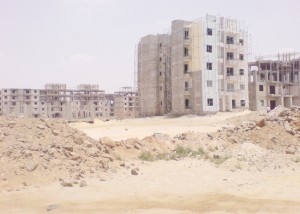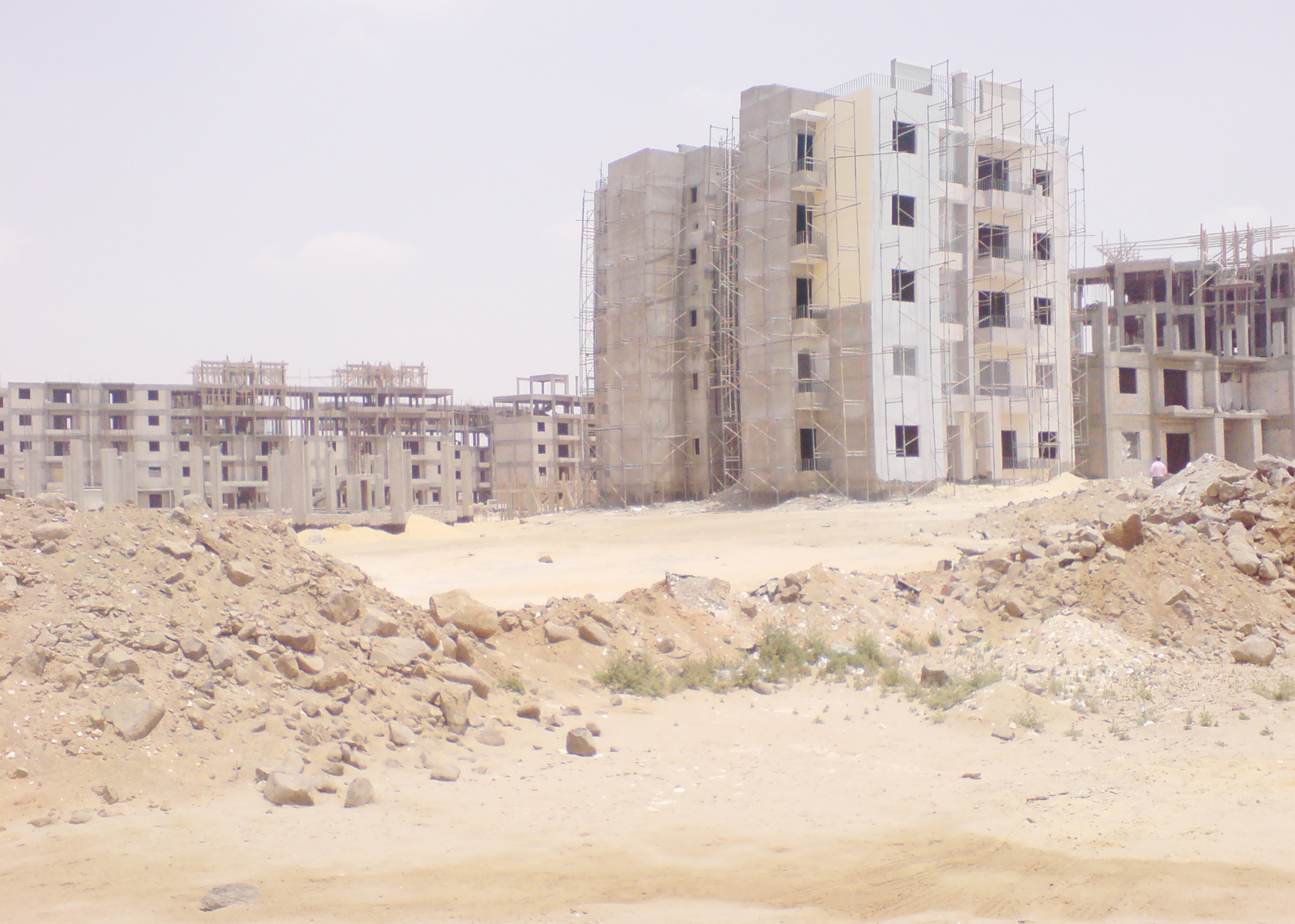
(DNE Photo)
The UAE has signed a cooperation protocol with Egypt’s Ministry of Housing, agreeing to finance the construction of 50,000 in 17 governorates at a value of EGP 11bn.
The protocol entails that the constructed properties will belong to the Social Housing Fund. It further stipulates that revenues from these properties will be used to finance new residential units in the social housing project.
The Egyptian Armed Forces Engineering Corps, accompanied by Egyptian contractors, have been supervising the implantation process which started mid-October 2013.
The head of the Executive Body for Social Housing told Daily News Egypt that the project is expected to be finalised by July.
According to a statement issued by the Egyptian cabinet, the involvement of the Armed Forces Engineering Corps has helped “accelerate the implementation process in all sites”.
Minister of Housing Mostafa Madbouly highlighted the ministry will present the new units to “targeted citizens”. The constructed units will be five-storey buildings with apartment areas at 90 sqm, the minister said, noting that each apartment has three bedrooms and a bathroom.
Approximately 350 citizens will benefit from the project. The project has provided 220,000 temporary job opportunities during the construction phase, and will provide 10,000 permanent jobs after its completion.
Last month, Madbouly announced that a considerable number of housing units from the 1m residential units’ project are to be delivered by mid-April.
The application requirements included the specification that applicants should not own any residential units, and should be living in the concerned governorate. The age-limit of those benefiting from the project has also been raised to up to 50 years of age, instead of 45.




